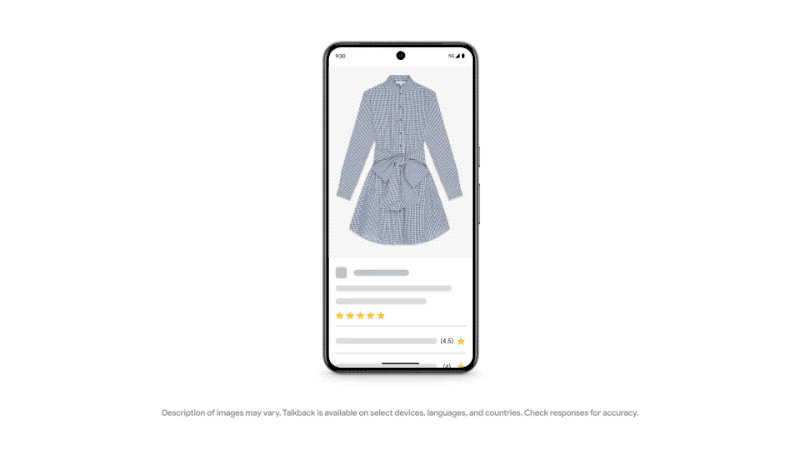Technology has the potential to bridge gaps and enhance accessibility for everyone, especially for individuals with disabilities. A poignant example of this is Google’s innovative integration of its Gemini Nano technology into TalkBack, the accessibility feature that serves blind and low-vision users. This exciting new development not only heralds a leap in usability but also exemplifies how artificial intelligence (AI) can facilitate more inclusive experiences in our increasingly digital world.
What is Gemini Nano?
Gemini Nano represents the smallest version of Google’s large-language-model-based platform, designed specifically for on-device operation. This means it operates without needing a constant internet connection, a valuable feature that enhances its usability in various settings, especially where connectivity may be limited. By employing generative AI, Gemini Nano can transform the way information is relayed to users, making descriptions of images a reality for those who are blind or have low vision.
Enhancing TalkBack’s Capabilities
The integration of Gemini Nano into TalkBack marks a significant shift—one that allows AI to supplement information that would typically require manual input. TalkBack users, who encounter around 90 unlabeled images daily, will now receive aural descriptions that provide context and detail. For instance, when presented with a photo of clothing, rather than simply stating “image,” the AI technology describes it as, “A close-up of a black and white gingham dress with a collar, long sleeves, and a waist tied with a big bow.” This enriching feature aims to make digital interactions more informative and user-friendly.
The Impact of Generative AI on Accessibility
AI technologies like Gemini Nano can profoundly impact accessibility by creating a more equitable online experience. As Sameer Samat, president of Android ecosystem, remarked, this update is designed to “help fill in missing information,” whether it’s identifying an object in a photo shared by a friend or understanding the style of clothing while shopping online.
- Personalization: The system’s ability to provide detailed descriptions not only boosts confidence when interacting with digital mediums but also encourages users to engage in online shopping without assistance.
- Independence: By reducing reliance on others to describe images, users experience a greater sense of autonomy in their digital lives.
- Inclusivity: As more software incorporates AI-driven solutions, a wider range of people can access and enjoy fully the benefits of technology.
Looking Forward: Launch and Availability
The integration of Gemini Nano into TalkBack is set to arrive on Android devices later this year. If the demo results hold true, this launch could signal an important milestone in accessibility technology. As voice-guided descriptions become commonplace, blind and low-vision users can look forward to a more seamless digital interaction that respects and acknowledges their needs.
Conclusion
Google’s initiative to enhance TalkBack with Gemini Nano isn’t just about improving existing features; it’s about fostering a culture of inclusivity. The potential of generative AI to fill in the gaps of information and create richer experiences for users is promising. By incorporating these tools into everyday applications, we can reshape how individuals interact with the world around them.
At fxis.ai, we believe that such advancements are crucial for the future of AI, as they enable more comprehensive and effective solutions. Our team is continually exploring new methodologies to push the envelope in artificial intelligence, ensuring that our clients benefit from the latest technological innovations. For more insights, updates, or to collaborate on AI development projects, stay connected with fxis.ai.

